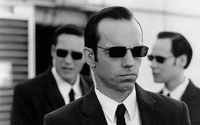Of Beggars, Vampires and the "New Relationship"

What follows is a guest commentary, by Lana Lowe a travelling Dene friend riding her motorcycle down through the Americas:
LA PAZ, MEXICO, GUAYCURA TERRITORY. One of the first people I met when I first got to La Paz was Hector. In his early 50s, dishevelled and weathered, Hector appeared in Mareiros to see if there were any gringos around with a spare peso to help him get a bus ticket back to Guadalajara. I’d already decided that I would give him a few pesos so I saved him the trouble of the pitch and instead engaged him in conversation. His faded “La Paz, BCS” t-shirt suggested that he’d been in La Paz for a while. I asked him how long.
“Eight months. I’d like to go home now,” he said, reclining awkwardly in one of the small bistro chairs as I paid my bill and waited for the barista, Armando, to bring me some change. I told Hector I too was planning to go to Guadalajara. His face brightened, “Muy bonita. Very nice. Muchas cosas interesantes. Muchas personas.” Then he pointed at the helmet on my lap, “Tu casco.” He motioned outside where my bike stood, “Tu moto?”
I nodded and told him about my trip. He looked at me in disbelief, “Sola?” I nodded. He pulled back and looked at me, trying to figure out if I was for real. Deciding I was, he shook his head and straightened up in the tiny metal chair, not knowing what to say. I shrugged and let out a little laugh.
Armando returned with my change. Even though he had only asked for one peso, I offered Hector four, telling him four is better—it’s good luck. He took the money and shook my hand, “Mucho gusto. Bien viaje.” I thanked him and wished him well too.
About a week later, I was parking my bike (always a slow and somewhat awkward affair since my feet barely touch the ground) while Allen, one of the motorcycle adventure guys, waited. As I was taking off my helmet, Hector appeared with a big hello and a handshake. I introduced him to Allen. Allen, sensing a beggar, offered a quick hello and stepped back.
I asked Hector how his ‘fundraising’ was going and if he’d managed to get enough money for a ticket yet. He laughed and said La Paz isn’t so bad. Allen started toward the street, and I bid Hector farewell. Before I could walk away, he grabbed my hand and said, “For you. You’re a nice person. I want to give you something.” In it, he pressed a small plastic keychain adorned with a tiny red lobster and a small seashell inscribed with La Paz, BCS. It was cheap. It was cheesy. And it was beautiful.
I was touched that Hector, who had so humbly asked me for a peso (about 10 cents) and so graciously accepted the four that I offered him, wanted to give me something. Now it was I who humbly accepted his generosity and kindness. I immediately put it on my key clip. I shook his hand and thanked him again for the gift. He looked very pleased. I showed Allen the keychain. He lifted his eyebrows briefly and said, “Cool.” I think I sensed a little sarcasm or perhaps impatience.
Since then, I’ve been mulling over my brief encounters with Hector and the concept of giving. I think about how I met him—that he had asked me for something and I was able to give it to him. I remember how pleased I was with myself afterwards. I think about how happy Hector was to be able to give me something. And I think about how humbled I was to receive his gift. Hector, in his desire and ability to give, ceased to be the beggar that Allen perceived him to be. And I, formerly the giver and empowered by the act of giving, was humbled and grateful to receive this small gift from him. In his seemingly small gift, Hector had created balance and harmony between us that made us both feel pretty good. And that got me thinking.
The key to creating such balanced and harmonious relationships is not generosity or even a willingness to give. Many a generous giver has motivations that have more to do with assuaging their own guilt, fear and insecurities than creating balance and harmony in the world. Still others have darker motivations that keep the balance tipped in their favour and maintain a world of disharmony because it serves their interests. The key to balance and harmony then is a willingness to both give and to receive. The key, in other words, is humility.
Take for instance, the United States and their reluctance to accept help from Mexico in the aftermath of Hurricane Katrina. In their undying arrogance and childishness, the United States government initially refused to receive such foreign aid, especially from Mexico. Mexico has its place in the world order and they have no business offering aid to the All Mighty and Supreme Power. The United States are givers not receivers of aid. This gets to the heart of the power dynamics of giving and receiving.
Giving empowers the giver and humbles the receiver. The giver in their ability to give becomes superior to the receiver. And giving, in all its generosity, cannot cull benevolence from a malevolent and arrogant heart.
A prime example is the “New Relationship” in British Columbia. Canada has spent its entire existence sinking its teeth into the throats of our people and ripping the guts out of our territories. And there is no end in sight—they intend to continue until there is nothing left to feast on and no more crumbs to placate us with. In the distribution of these crumbs, Canada engages in a strategic philanthropy that enrages less strategically minded Canadians with its sheer generosity, and has led many of our people to believe that restitution is near—that the carnage will cease and peace and harmony will be restored in our territories. These people are foolish.
What if Canada stopped giving? I can almost hear the collective gasp as every Indian Chief in Canada reaches for his heart medicine. Seriously, why did the Province of British Columbia give us Indians $100,000,000 to establish a “New Relationship” with them? And why does this generous gift form the very basis of this New Relationship? Because there is nothing new about it. In this act of giving, British Columbia bolsters its superior position in an unbalanced and disharmonious relationship that makes us beggars in our own lands.
Why not establish a New Relationship in which Canada is willing to receive (not take—receive) from those peoples whose territories it has been devouring? What if Canada was willing to receive our humble gifts of knowledge and understanding? What if Canadians were humble enough to receive our teachings—teachings that have told us for generations how to live properly in these lands and with each other? If Canadians were willing to receive these gifts, would they then stop trying to destroy our very existence?
Only when Canada stops giving and starts receiving will peace and harmony be restored in our lands. This, thanks to Hector, I am very sure of.
[Read more of Lana's adventures and observations at www.lowerider.ca]


